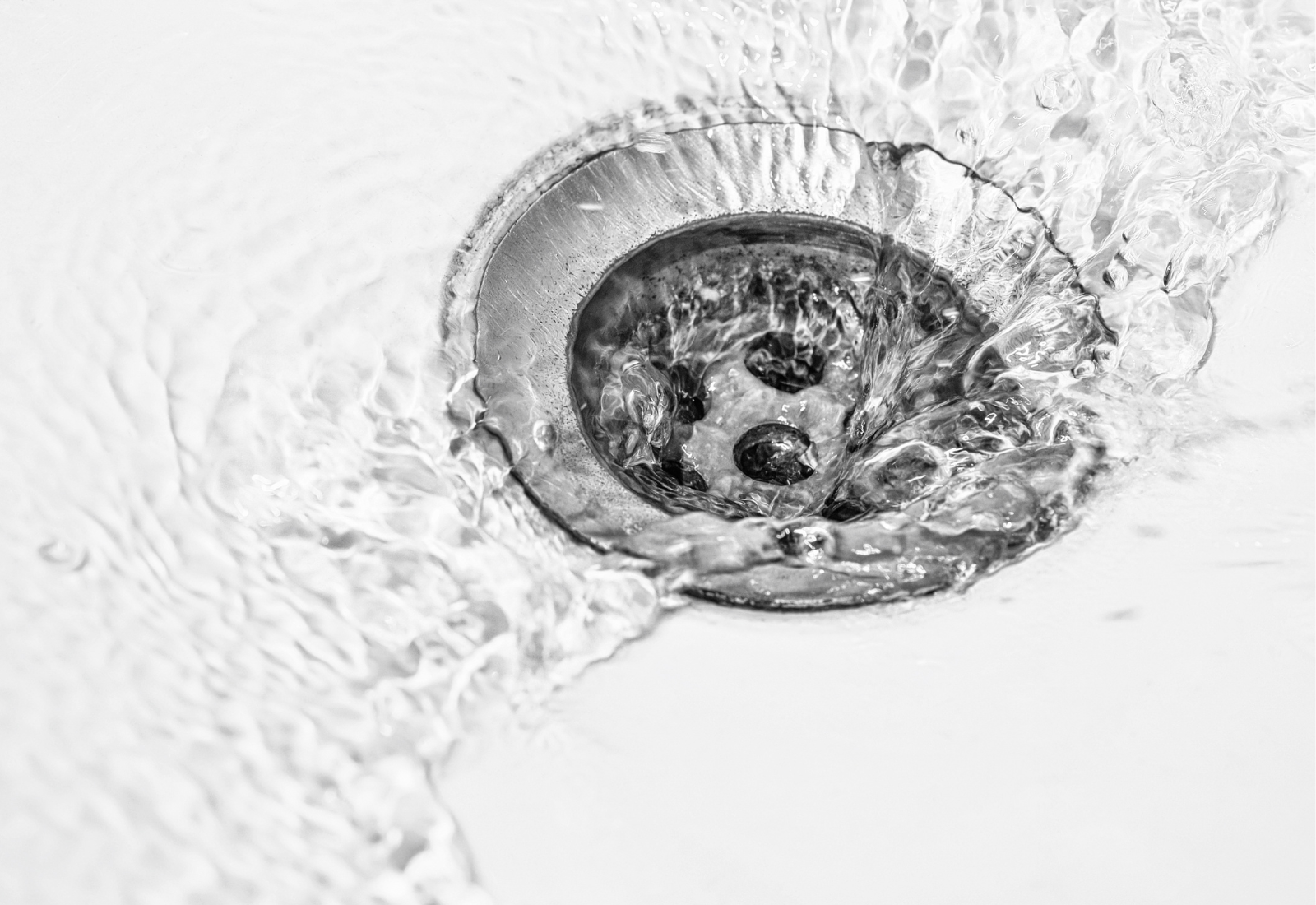
How to Prevent Clogged Drains & Other Drain Issues
Forget leaky faucets – clogged drains are the real monsters under the sink, lurking in the shadows, waiting to strike when you least expect it. One minute you're washing dishes, the next, you're staring down at a pool of greasy doom.
But before you reach for the chemical drain cleaner (cue ominous music), there's a better way!
Read on to unlock the secrets of happy, healthy drains and banish those plumbing nightmares once and for all.
Kitchen Drain Maintenance
-
Dispose of grease and oil properly – Grease is the #1 culprit for clogged kitchen drains. Grease and oil should NEVER go down the drain! Once you've finished cooking with oil, let it cool and solidify (maybe even overnight). Then, scrape the solid grease into a container and send it to the dumpster.
-
Use drain screens (or strainers) to catch food scraps – This is particularly important if your sink doesn’t have a garbage disposal. Even if you have a disposal, it’s still best to avoid tossing food scraps down the drain. Instead, collect food leftovers for compost or throw them in the trash. Certain food items should simply never go down the garbage disposal, including egg shells, banana peels, coffee grounds, potato skins, nuts, bones, and onion layers.
-
Run your garbage disposal with cold water – Hot water is generally considered ideal for cleaning. But the opposite is true for garbage disposal care! Cold water keeps oil and grease in a solid state, reducing the likelihood of a clog.
-
Clean your garbage disposal often – Pour a cup of baking soda down the disposal and let it sit for 30 minutes. Then, pour a cup of vinegar down and wait 5 minutes. Rinse with hot water. Then, grind up two cups of ice and one cup of salt. If you use your garbage disposal regularly, you’re going to want to do this once or twice a month. If your kitchen sink doesn’t have a disposal, pour a kettle of hot water down your drain weekly to flush down any lingering food particles. Then, every once in a while, clean it out with baking soda and vinegar as mentioned above – using boiling water instead of ice and salt.
Bathroom Drain Maintenance
-
Use hair traps – for showers and sinks – Sure you could just go through with a drain snake every month to pull out all the hair and gunk that’s built up in your drains. But, if you want to avoid this nasty chore (at least as much as possible), we 100% recommend some sort of mesh drain cover or drain stopper.
-
Brush your hair BEFORE showering – That way, by the time you get to the shower, the majority of your loose hair will be in the bristles of your brush rather than clogging up your shower drain.
-
Opt to bathe pets outdoors – Human hair isn’t the only kind you have to worry about. Dog hair or fur can also do a number on your shower drain. If you can’t wash your pet outside, at least place a wash cloth over your drain beforehand.
-
Only flush toilet paper down the toilet – Your toilet is not a wastebasket. Your pipes aren’t designed to handle anything other than bodily waste and toilet paper. And even using excessive amounts of toilet paper can cause issues.
-
Clean your drains and drain stoppers regularly – Just like your kitchen drains, your bathroom drains should be cleaned at least every couple of weeks. Pull out and thoroughly clean those hair catches and stoppers. Pour a tablespoon of salt and a quarter cup of vinegar down the drain. Wait about an hour. Then, run hot water down your drain to flush everything down. You’ll also want to flush out your toilet occasionally with a 5-gallon bucket of water.
Overall Drain Care
The following steps are applicable to any drain – kitchen OR bathroom.
-
Know what to avoid putting down the drain – Oil, grease, certain food scraps, hair, paint, cement, grout, and foreign objects don’t belong in your drains. This is the first (and easiest) thing you can do as a homeowner to keep your drain lines in tip-top shape.
-
Use the right cleaning agents – Some chemical cleaners you find at the store can actually do major damage to your pipes, and should only be used as a last resort (after you’ve talked to a professional plumber). Instead, opt for natural cleaning agents – like vinegar, baking soda, and salt.
-
Schedule routine professional inspections and maintenance – The best way to prevent drain blockage is keeping a regular maintenance schedule. We recommend hiring a professional drain cleaner at least once a year. And if you notice persistently slow drainage, gurgling sounds, nasty odors despite cleaning, and/or signs of a bigger plumbing problem, call a plumber immediately.
-
Don’t ignore consistent back-up issues – It’s not enough to simply get your sewer lines cleaned every now and then. There could be a much bigger problem at hand, whether it be a collapsed or rotted pipe or an intrusive tree root.
Odyssey Mechanical, LLC | Wilmington, NC Plumber
Think you have a monstrous (or persistent) drain clog on your hands? We can help! Schedule a plumbing inspection or routine plumbing service today.
READ MORE:

